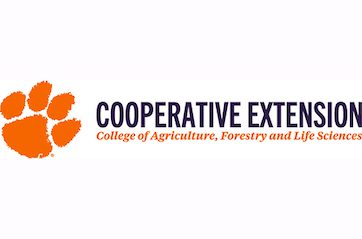As online offerings continue, Clemson Extension is preparing to reopen county offices under modified operations based on S.C. DHEC data
Clemson, S.C. – Clemson Extension continues to meet the needs of South Carolinians during the COVID-19 pandemic with innovative programming and adherence to safety protocols.
Since March, county offices have not been accessible to the public per protocols set by Clemson University and public health officials. Many agents transitioned to digital platforms to continue providing valuable resources and educational programs, while others were able to perform site visits on a case-by-case basis.
“Extension personnel have not stopped serving the citizens of South Carolina since we began modified operations back in March,” director Thomas Dobbins said. “However, our strength is meeting with our audiences in person, and we are excited to get back to that when we can do so safely.”
Clemson Cooperative Extension has developed a plan for transitioning back to normalized operations. Based on weekly, county-by-county data from the S.C. Department of Health and Environmental Control, Extension offices will reopen in stages. Contact information for county offices is available online for inquiries about programming availability and services.
“Clemson Extension delivers unbiased research-based information, and science will guide our decisions on reopening our offices,” Dobbins said. “By all accounts, our agents and staff have done an excellent job keeping our clients safe while also fulfilling our Extension mission.”
Even though programming has been online since March, South Carolinians have still been able to turn to Clemson Extension as a resource. Multiple programs have even seen an increase in audience engagement compared to the same timeframe last year.
From April through August, the Horticulture program’s Home and Garden Information Center had a 116 percent increase in website traffic for hgic.clemson.edu, an 85 percent increase in emails answered and a 43 percent increase in phone calls answered. During June and July, the Food Systems and Safety Food2Market program had an increase in the number of entrepreneur product tests.
From March through August, the “Making It Grow” webpage on scetv.org averaged more than 6,901 pageviews (1,150 per month), a 69 percent increase over last year.
Since mid-March, the Rural Health and Nutrition WalkSC and diabetes programs have experienced a 195 percent increase in participants, the Agronomic Crops team conducted 72 trainings and made over 300 field visits to producers, and the Natural Resources team held 35 virtual programs.
Concerning financial impacts, the Agribusiness team conducted training across the Southern Region (14 states) for economic coronavirus relief programs and provided South Carolina producers with assistance for loan applications totaling over $5.3 million. Ongoing involvement with producers by members of the Livestock and Forages team has facilitated the sales of 2,267 head of cattle and increased revenue across the state by over $630,000.
Extension’s youth-focused programs, Agricultural Education, and 4-H Youth Development, also continued engagement efforts through virtual programming. The Agricultural Education team was able to host its two signature events, the FFA (Future Farmers of America) State Convention and Agriculture Teachers Conference, and 18 virtual FFA Career Development events.
The 4-H @ Home program, launched in March after the cancellation of in-person activities, was the most far-reaching Clemson Extension initiative for youth. The program not only engaged over 2,500 youth from all 46 counties in South Carolina, it drew youth from 46 states, 1 U.S. territory, and 8 countries across 4 different continents.
The September 15 episode of Clemson Extension’s Making It Grow gardening show featured Dobbins discussing with host Amanda McNulty how the different programs in Extension have adapted during the pandemic.
“Extension’s program delivery methods for taking education to the citizens of South Carolina have continuously evolved over the past 106 years to adapt to changing times,” Dobbins said. “We have made great strides in adapting to challenges resulting from COVID-19.”
Clemson Extension’s COVID-19 website provides links to program area resources and publications to help South Carolinians and the state’s agribusinesses cope with the COVID-19 crisis. Because Extension county offices are still unable to accept soil samples at this time, mailing instructions for this frequently used service are also provided on the website.
Citizens are encouraged to call or email their local county Extension office or agent for information or assistance with Extension programs and resources.
Get in touch and we will connect you with the author or another expert.
Or email us at news@clemson.edu

